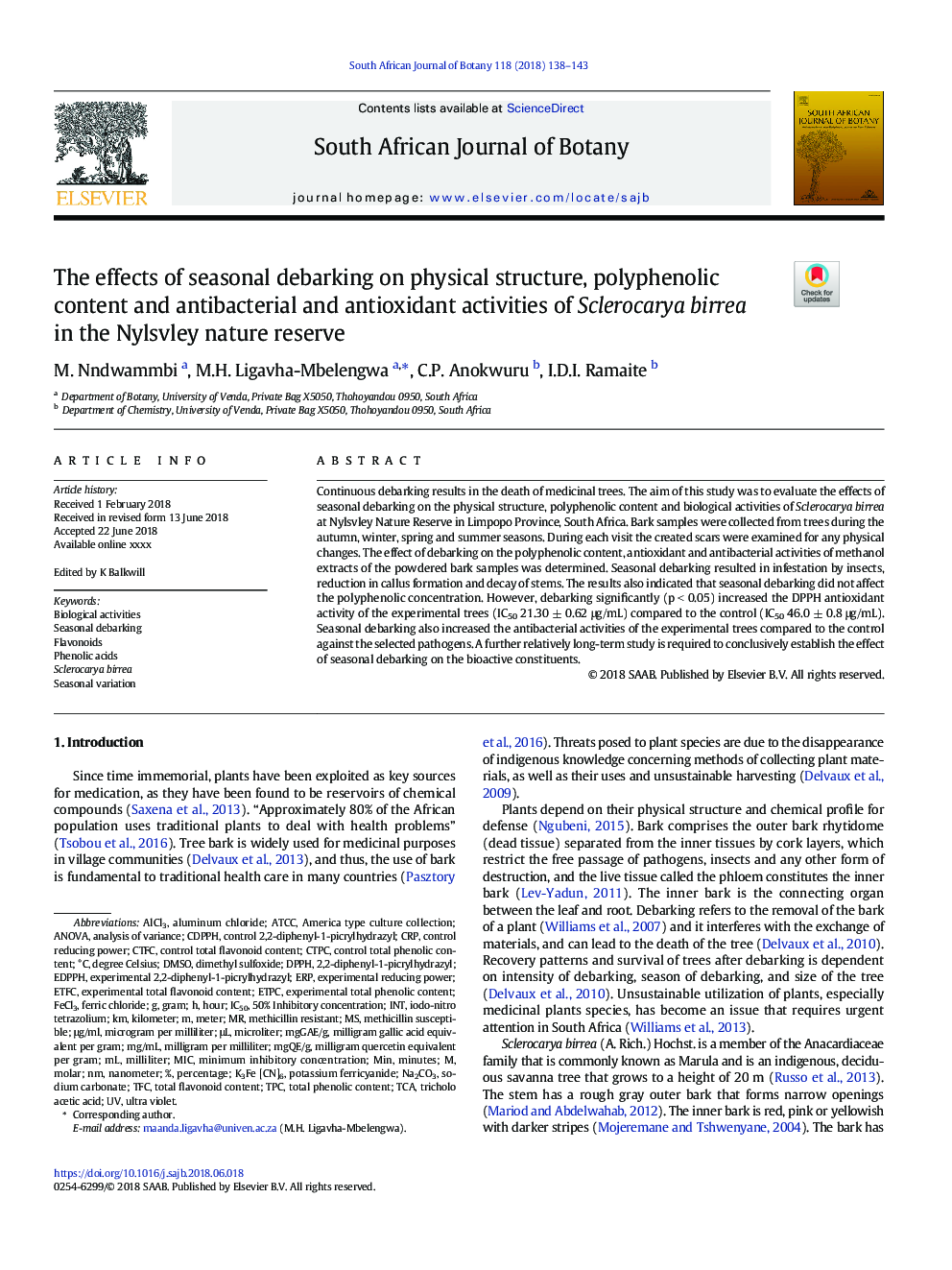| Article ID | Journal | Published Year | Pages | File Type |
|---|---|---|---|---|
| 8882218 | South African Journal of Botany | 2018 | 6 Pages |
Abstract
Continuous debarking results in the death of medicinal trees. The aim of this study was to evaluate the effects of seasonal debarking on the physical structure, polyphenolic content and biological activities of Sclerocarya birrea at Nylsvley Nature Reserve in Limpopo Province, South Africa. Bark samples were collected from trees during the autumn, winter, spring and summer seasons. During each visit the created scars were examined for any physical changes. The effect of debarking on the polyphenolic content, antioxidant and antibacterial activities of methanol extracts of the powdered bark samples was determined. Seasonal debarking resulted in infestation by insects, reduction in callus formation and decay of stems. The results also indicated that seasonal debarking did not affect the polyphenolic concentration. However, debarking significantly (pâ¯<â¯0.05) increased the DPPH antioxidant activity of the experimental trees (IC50 21.30â¯Â±â¯0.62â¯Î¼g/mL) compared to the control (IC50 46.0â¯Â±â¯0.8â¯Î¼g/mL). Seasonal debarking also increased the antibacterial activities of the experimental trees compared to the control against the selected pathogens. A further relatively long-term study is required to conclusively establish the effect of seasonal debarking on the bioactive constituents.
Keywords
μLμg/mlNa2CO3Sclerocarya birreaMETERCTFCAlCl3ATCCintTFCTPCMICTCAIC50FeCl3DPPH2,2-diphenyl-1-picrylhydrazyl50% inhibitory concentrationDMSO°CPhenolic acidsERPUltra violetanalysis of varianceANOVASeasonal variationMinMinimum inhibitory concentrationdegree celsiusPercentageminutesDimethyl sulfoxideHourPotassium ferricyanideBiological activitiesFlavonoidsTotal phenolic contentMethicillin resistantTotal flavonoid contentMolarmilliliterMicroliternanometerCRPSodium carbonateAluminum chlorideferric chloridekilometerGram
Related Topics
Life Sciences
Agricultural and Biological Sciences
Agronomy and Crop Science
Authors
M. Nndwammbi, M.H. Ligavha-Mbelengwa, C.P. Anokwuru, I.D.I. Ramaite,
